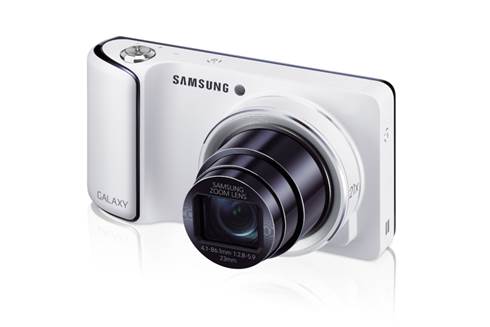CES 2013
The Consumer Electronics Show 2013
(CES2013) should be happening by the time you read this story (in January
2013!). This means that we will be treated to a slew of new fancy devices, some
of which that will excite and amuse. Otherwise, we can definitely be ready to
see hardware upgrades to existing models, especially within the mobile devices
space.

Manufacturers
of Windows 8 devices should have reined versions of their existing products on
show as well
That being said, manufacturers of Windows 8
devices should have reined versions of their existing products on show as well.
Well, at least ones that will be equipped with the Windows RT alternative. That
should be something to get excited about as it will give us an indication of
just how much confidence they have in the new operating system (OS).
Windows Phone should also be making a
showing at the trade show. Although there have been very vague plans for the
platform from manufacturers. We know that Nokia is bound to WP8 but beyond that
is anyone’s guess.
Fortunately, sales numbers have shown that
WP8 is picking up some traction in the market, which would encourage Samsung
and HTC to continue with their involvement on this platform. It might even
convince some of the other manufacturers to diversify their portfolio as well.
A phone with an Intel chip and a Microsoft OS sounds mighty interesting to me.
Google’s Android platform, meanwhile, is
now terribly fragmented. Even so, we should at least see more upgrades to version
4.1. Not that any of the big names appears very eager to jump on board. Don’t
expect to see many Jelly Bean devices at CES or for the first quarter of the
year. Here’s to hoping that Google slows down development a little so everyone
else can catch up.
Gesture
Sony and Samsung have been making
flirtations with voice and gesture controls, an area that Intel believes will
be very big in 2013. The Samsung Smart TV proved that some of the technology is
ready for regular consumers, albeit ones in the upper income bracket. Even the
new Samsung Windows 8 All-in-One comes equipped with gesture control. It wasn’t
quite polished when I tried it out but it’s a good start. After all, someone
has to go first.

Sony
84in Bravia KD-84X9005 4K TV
Oddly enough, the ones that should be
getting into motion control for PCs is Microsoft themselves. The Kinect is far
superior to those that Samsung and Sony offer. In fact, a developer kit is
readily available for all to fiddle with. Despite being released to some amount
of fanfare early last year, Kinect for Windows has gone quiet. The impending
change of OS might have dampened some enthusiasm to develop for the platform,
though there is a chance that it will appear again when Microsoft decides to
push their centralized eco-system.
Imaging
The real thing to watch out for is the
recently improved television platform. Massive 4K displays began rolling out at
the tail end of 2012 and the trend should continue into CES2013. It won’t be
surprising to see more than a few 90in, ultra-high definition monstrosities on
display.
Indeed, there’s some catching up to do for
media players if they are to match the processing power needed to display
content in this new format. We can expect one or two prototypes to show up at
CES but nothing really mass produced until later in the year.
On the camera front, we are waiting to see
if Samsung’s idea of sticking the Android OS inside a camera will catch on.
Early reviews had been quite enthusiastic about the idea but it’s unlikely that
the trend will continue. It is, however, interesting to note the choices
Samsung has made in creating an eco-system out of some very unusual devices.
Tying all your gadgets together with Android seems like a good idea, but
consumers are not warming up to it just yet.

On
the camera front, we are waiting to see if Samsung’s idea of sticking the
Android OS inside a camera will catch on
Batteries
The current trend of sticking more and more
functions on everything is creating a world where the operational time of
devices is measured in mere hours. Intel has noticed this trend and expects it
to reverse. A combination of improved battery technology and energy efficient
components will see our dedicated companions last longer while still being able
to do more.
At least we can be sure that Intel will be
working on making their own Ultrabooks last longer than the current batch. The
new Haswell microarchitecture will deliver up to 10 hours of operational time.
The ultimate goal is to boost power efficiency by 20 times – a number that
should see us recharging our future super slim notebooks once a week or so.
That’s definitely a piece of innovation to look forward to.
The year of gimmicks?

Samsung
gave us the S-Pen, which is a fantastic stylus
2012 was good for technology. Mostly. While
there are some innovations to see and look, there is not much ground-breaking
ones to gloss over. Nokia tried something new with Lumia. Samsung gave us the
S-Pen, which is a fantastic stylus. Apple added another row of icons.
Touchscreens arrived on desktop PC. 4K resolution appeared on TV. We landed a
probe on Mars and found ice on Mercury. As the saying goes, with one slight
revision: Another small step forward for mankind.
Indeed, 2013 will most likely see
incremental improvements to what we already have. Gesture and voice control
will become more reined, although it is difficult to imagine it being
widespread. Bigger screens with higher resolution will also be more common.
Don’t expect the next big leap forward for another few years. That is unless
Blackberry 10 somehow pulls something amazing out of the proverbial hat.